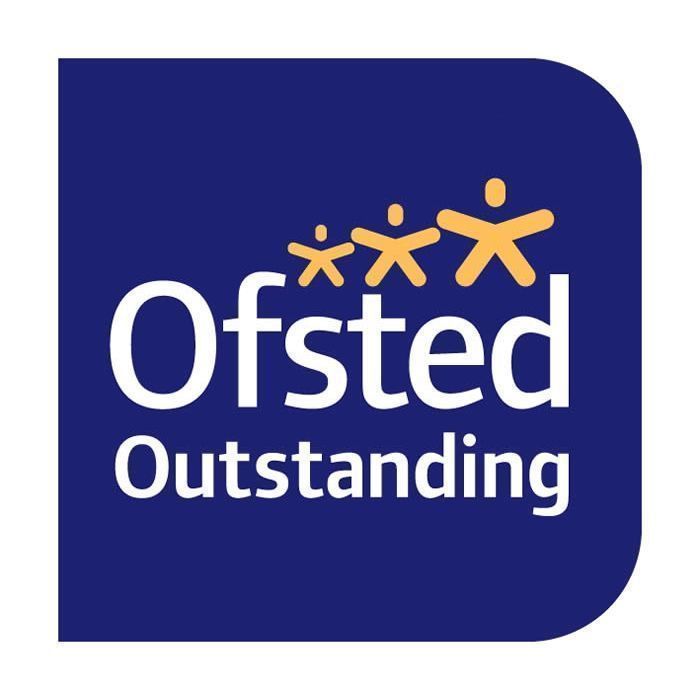Special Educational Needs and Disability
-
1. How does the education setting know if children need extra help and what should I do if I think my child may have special educational needs?
Before your child starts with us, we will ask you a number of questions so we can find out about your child’s stage of development. We also offer the opportunity for a Home Visit and/or Settling visit which is another time to raise any concerns you may have before your child starts. Our highly experienced practitioners have an excellent knowledge of early child development so are ideally placed to see if children need extra help and support.
If you think your child may have special educational needs or a disability, your child’s key person will be happy to discuss this with you. In addition you can discuss your concerns with our Special Educational Needs and Disability Co-ordinator, Lou Monelle.
-
2. How will the setting support my child?
Our SEND co-ordinator, Lou Monelle, will oversee any additional provision that is needed to support your child. We recognise that you know your child best and value your input in helping us plan for your child. Lou works closely with families and outside agencies to ensure children with additional needs are well supported. Your child’s key person will also be involved in this process.
We are a small team, so all our practitioners will be involved in your child’s care. Our whole team will employ suggested strategies to support your child.
We regularly review our SEND provision to ensure our children with additional needs are thriving.
-
3. How will the curriculum be matched to my child’s needs?
We have a wide range of resources suitable for children of different ages and stages of development. Your child’s key person will ensure that activities are closely matched to your child's interests whilst helping them to make progress. Our planning is child-focused and our reflective practitioners are skilled at following children's interests and extending their learning.
-
4. How will both you and I know how my child is doing and how will you help me to support my child’s learning?
We pride ourselves on our fantastic relationships with parents and carers. If your child has additional needs, it is often helpful to meet more formally at mutually convenient times to talk about your child’s progress. This helps us plan the provision of the additional support that's needed.
Your child’s key person will share your child's progress via their Learning Journal, in regular informal parent/carer meetings and a written report at the end of each academic year.
The Preschool Leader has an overview of each child's progress and we work together to ensure every child thrives.
We aim to offer a variety of parent/carer learning events throughout the year in areas such as:
* The EYFS and how children learn
* Children’s Language Development
* Safeguarding
* Toileting
* School Readiness
We can signpost parent/carers to other organisations who will be able to support their needs.
-
5. What support will there be for my child’s overall wellbeing?
Our caring and committed practitioner team will all be involved in the care of your child. Your child’s key person and our SEND co-ordinator will be particularly involved in providing pastoral care and support for your child and your family.
All of our staff are qualified in paediatric first aid. If your child has an ongoing medical condition, we will make a Health Care Plan with you. Medicines will only be administered if they are part of your child's ongoing care plan, (e.g. an inhaler), or if they have been prescribed by a GP/hospital and have the original prescription label on them. We follow a comprehensive policy for administering medicines.
Your child's personal care is carried out by the child’s key person and other practitioners in our small team. All practitioners have Enhanced DBS checks. Volunteers and visitors do not assist with your child's personal care.
Your child's voice is always listened to and your child's wishes are respected by our practitioners. We will always encourage rather than force a child to do something.
-
6. What specialist services and expertise are available at or accessed by the education setting?
Our SEND co-ordinator undertakes regular training to keep up-to-date with best practice in providing for children with SEND. Staff regularly use Makaton and visual aids to support children with transitions, choices and behavioural expectations.
We liaise with outside agencies to support your child. Examples of outside agencies are Speech & Language therapists, the Bristol Autism Team and Occupational Therapists. .
-
7. What training have the staff supporting children with SEND had?
White Tree Preschool passionately believe in supporting the Continuing Professional Development of their staff. Practitioners regularly attend training courses which help them to support children with additional needs. Examples of recent training courses attended are: The role of the Early Years SENDCO, Makaton training, Understanding Autism, Attachment Theory in Practice, Managing Difficult Behaviour, Supporting Transitions and Social, Emotional and Mental Health Toolkit.
-
8. How will my child be included in activities including trips?
Children with additional needs are equal participants in all that White Tree Preschool offers. We ensure that all our activities and learning spaces are suitable for all of our children.
Through a mixture of audits, risk assessments and making adjustments we always find a way to make things work!
-
9. How accessible is the education setting?
White Tree Preschool runs on the Upper floor of the Methodist Church Hall on North View. Wheelchair access is available via the courtyard entrance. Currently there is no wheelchair access to the first floor of the building. There is a disabled toilet on the ground floor and grab rails in the upstairs toilets. Access to the preschool hall and garden involves using the stairs. If a child is unable to climb the stairs, we will investigate ways to make the setting more accessible.
We welcome children and families who do not speak English as their first language or are bilingual. We celebrate diversity and endeavour to communicate clearly.
-
10. How will the education setting prepare and support my child to join the setting, transfer to a new setting or onto the next stage of their education?
We understand the importance of supporting your child with life's transitions.
When your child is joining us, we offer a Home Visit and/or settling visit to help them feel more comfortable. We provide a flexible settling-in process which is guided by your child's individual response to joining our setting.
With your permission, we will contact any previous setting/secondary setting to exchange important information about the best way to support your child, especially if they have additional needs.
When your child transfers to school or leaves for any other reason, we will liaise with the relevant school or receiving setting to support your child's transition. This will include liaising with the receiving SEND co-ordinator to ensure there is no gap in supporting your child's needs.
-
11. How are the education setting’s resources allocated and matched to children’s special educational needs?
Our budget is allocated as needs dictate and changes from year to year. We are a very well resourced setting and we use our resources skillfully to support our children's needs.
When children with additional needs require specialist equipment which we do not already have, we can apply for additional funding to meet those needs. We will work with you to discuss this and agree on a plan.
If your child needs additional adult support during preschool sessions, we can apply for a small amount of funding from the local authority.
Under the Code of Practice, an Education Health Care Plan may be applied for and the local authority may identify that additional money is required to support your child.
Parent/carers will have a say in how this is used and you will be told if this means you are eligible for a personal budget. This must be used to fund the agreed plan. -
12. How is the decision made about what type and how much support my child will receive?
The decision about what type and how much additional support your child will need will be made jointly between your child's key person, our SEND co-ordinator and the Preschool Leader.
Children with additional needs will have a termly IEP (Individual Education Plan) which sets SMART targets (Specific, Measurable, Attainable, Realistic, Timely). These will be created by your child's key person in consultation with our SEND co-ordinator. They will be shared with you and reviewed on a termly basis.
Some children will have a Support Plan which gives more detail about the range of support we provide for them and the reasonable adjustments we make.
Some children may have an EHCP (Education Health Care Plan) issued by the local authority. This outlines specific support and is reviewed on an annual basis.
-
13. How are parent/carers involved in the education setting? How can I be involved?
We are delighted to welcome all our families to White Tree.
We welcome diversity and difference and create an atmosphere where everyone feels welcomed and included.
We are keen to include parent/carers in their children’s learning and to welcome them to preschool. We will give you lots of opportunities to be involved. You might like to be a Mystery Reader, talk to the children about your occupation, come along on an Outdoor Learning trip or join one of our social activities!
-
14. Who can I contact for further information?
We have a fantastic Parent Information folder full of useful strategies and contact details of organisations who could help you and your child.
Further information can also be found via Bristol City Council's Local Offer. Visit their website: www.bristol.gov.uk/web/bristol-local-offer. This is a great resource with information to support the experience of children and young people who are disabled and/or have special educational needs. It provides information and advice about SEND services, SEND news and details of local support groups. Support is available for children living in Brsitol or attending Bristol educational settings.

